On Wednesday, March 4th at 9:00 am, Judge Pittman will rule on a temporary injunction against the Permian Highway Pipeline. The public is welcome to attend; please adhere to the respectful rules of the courtroom.
501 W. 5th Street, Austin, TX 78701, 9-1:00 pm [update posted 3/3/2020]
Response to Judge Pittman’s Ruling
The Wimberley Valley Watershed Association has been a part of the fight against the Permian Highway Pipeline since we first heard about the project in October of 2018 (www.SaveTheHillCountry.org). We have been working to rally our communities across the Hill Country and disseminate scientific reports and concerns about the many threats that the Permian Highway Pipeline will pose to our ecologically sensitive region.
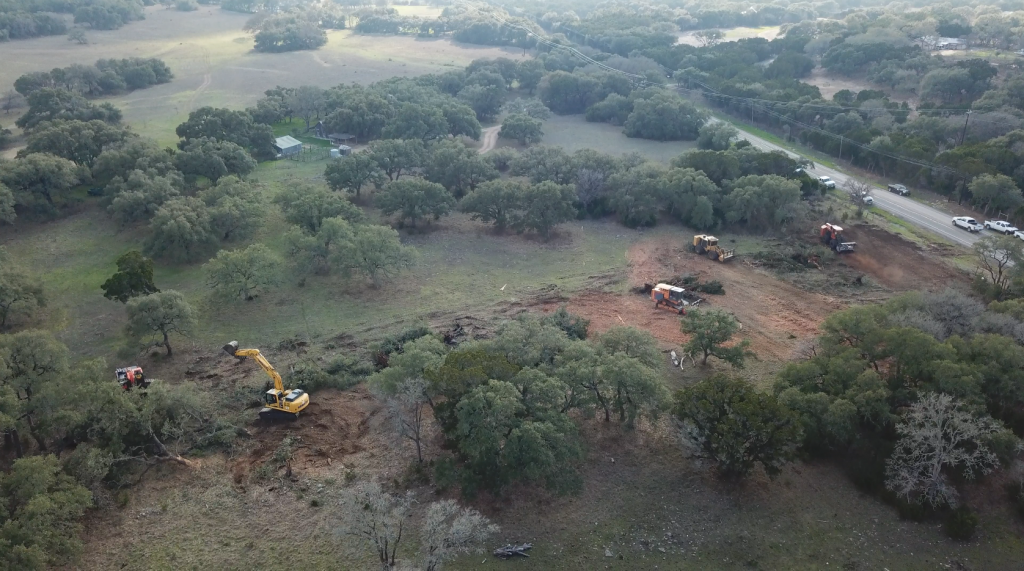
WVWA is disappointed by Judge Pitman’s ruling to deny the Temporary Restraining Order (TRO) and does not agree with the court’s interpretation of the irreparable harm analysis. Judge Pitman’s hands seemed somewhat tied by the issuance of the Biological Opinion of the United States Fish and Wildlife Service and the of the allowance by the Army Corp of Engineers use of a nationwide permit for all of the stream crossings along the proposed pipeline route.
WVWA encourages everyone to stand strong and support the two pending federal lawsuits regarding threats to endangered species and our aquifers. Landowners along the route have also filed a lawsuit claiming the Federal Energy Regulatory Commission jurisdictional authority should apply to the PHP and a full Environmental Impact Statement should be required. Additionally, the constitutional lawsuit filed last summer in Travis County District Court is under appeal and will continue moving forward through the legal system.
Kinder Morgan plans to build a 42-inch high-pressure natural gas pipeline from West Texas to the Houston area that will include transporting toxic and flammable substances through some of the most ecologically sensitive aquifer recharge areas in the Texas Hill Country. The proposed route does not require approval from any state agency even though it crosses the Edwards and Edwards-Trinity Aquifers, which supply drinking water for over two million people. The pipeline will also destroy the habitat of endangered Golden-cheeked Warbler, the Barton Springs Salamander, and the Austin Blind Salamander, among others. All ESA-listed species are granted protections from such development under the ESA.
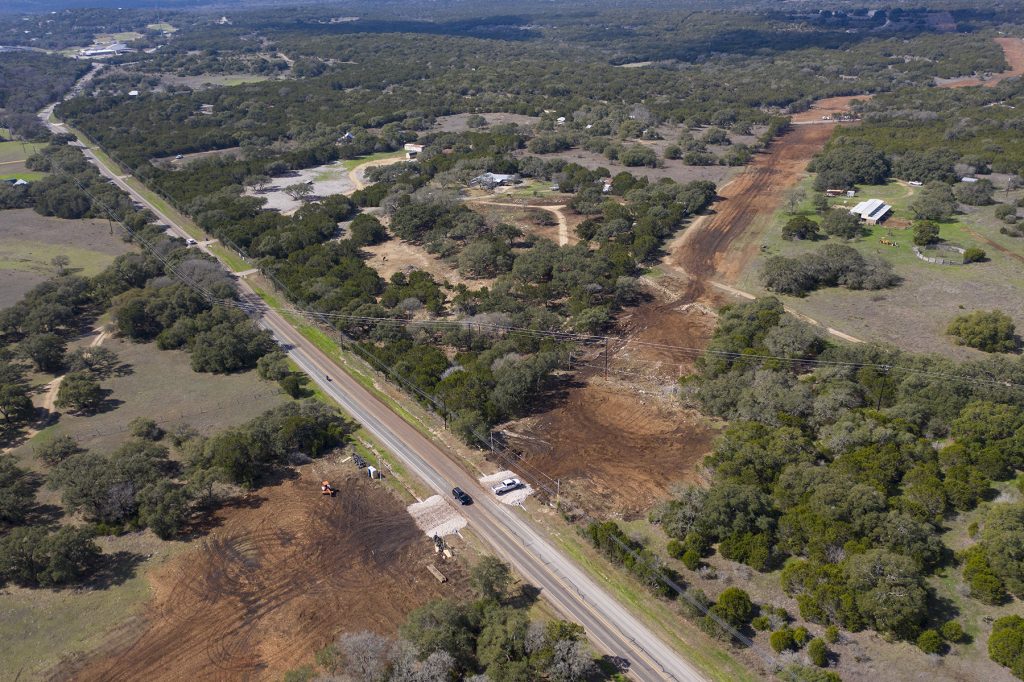
It is clear that this pipeline will have a tremendous impact on the habitat of Golden-Cheeked Warbler and the source drinking water aquifers and springs that sustain the endangered species that live in these waters. All of this is compounded by the lack of oversight and refusal of any public process to account for the safety and security of families, local businesses, and economic development adjacent to the proposed pipeline.
One positive protection for the aquifer was initiated by a presentation by WVWA at the March 5th, 2019 San Marcos City Council meeting, WVWA exposed the fact that Kinder Morgan had signed contracts with landowners that would allow them to switch the Permian Highway Pipeline from natural gas to crude oil, or other liquid hydrocarbons. After exposing this incredible threat to our drinking water aquifers, Kinder Morgan announced at the Caldwell County Commissioners Court the following week that they would change all landowner contracts to limit the PHP to natural gas only and not allow liquid hydrocarbons, which pose an even greater risk to our aquifers when the pipeline leaks.
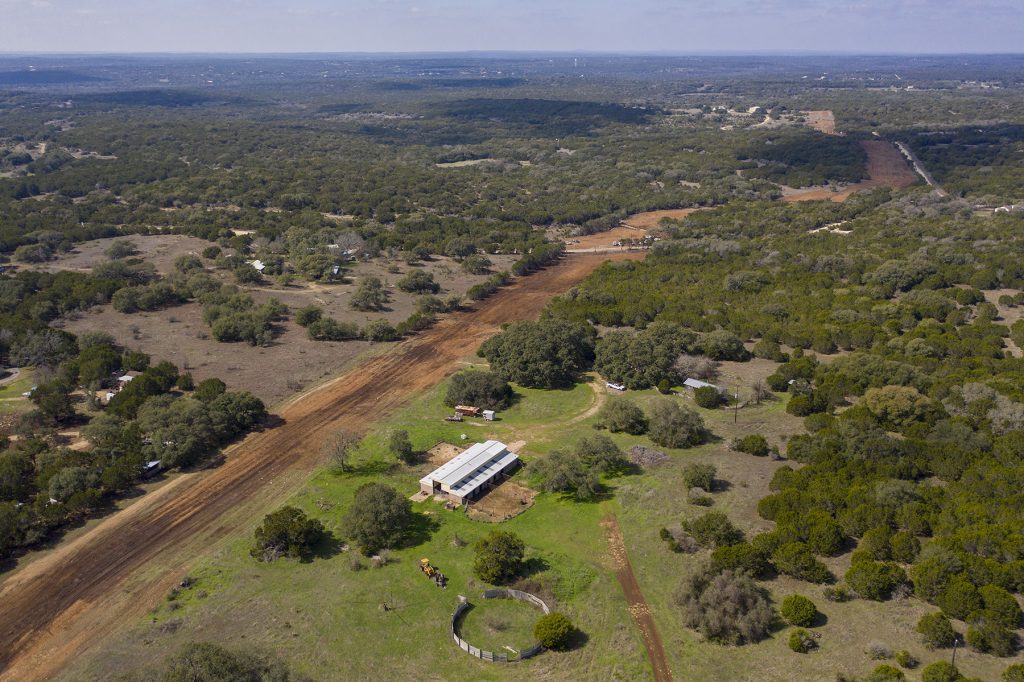
Even with the restriction to exclusively natural gas, there is still the potential of contamination to the aquifer from toxic chemicals in the condensate when the pipeline leaks. WVWA’s attorneys say this commitment to natural gas only is unprecedented with oil and gas companies. The promise to allow only natural gas was reaffirmed by the City of Kyle’s settlement agreement with Kinder Morgan over their pipeline ordinance lawsuit last year.
Additionally, there is still a tremendous risk of contamination from the sedimentation generated during the clearing and digging of the pipeline trench itself. There will be no regulatory agency monitoring during the construction, so when Kinder Morgan exposes a karst feature, they are not required by law (at this time) to mitigate as TXDOT or anyone else developing in the Edwards Aquifer or Contributing Zone are currently required to do by law. Therefore, reporting must be done by diligent landowners who are familiar with their land and who take videos and photos documenting the construction process.
Given the large number of sinkholes, the karst nature of our aquifer, the abundance of oaks and old growth cedar trees which provide habitat for numerous endangered species; WWVA believes a full review under the National Environmental Policy Act (NEPA) and an Environmental Impact Statement (EIS) should be ordered by the court and conducted before any final routing is approved. We are hopeful the next phase of the legal proceedings will bring to light the multiple risks the Kinder Morgan Permian Highway Pipeline poses to our numerous endangered species and the aquifers that support natural water treasures like Jacob’s Well, San Marcos, and Barton Springs.
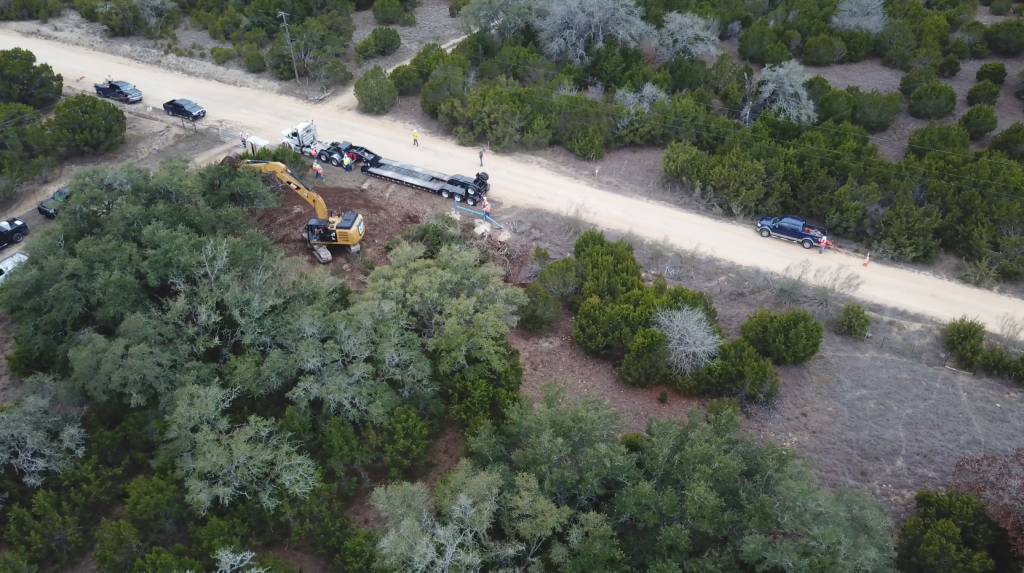
As supporters of the TREAD coalition, we believe that affected landowners and communities have a right to be involved in the review of environmental and human safety standards when eminent domain is used to condemn private property. WVWA believes public officials who are accountable to the citizens should have environmental oversight of routing, pipeline safety standards, and local mitigation of endangered species and not put these important decisions in the hands of corporate executives, with no accountability to the public or any regulatory agency. Corporations should be required to operate by at least the same rules as our local, state and federal governments when using the awesome power of eminent domain to take private property and when public health and safety are at risk.
WVWA is proud of all the landowners, organizations, local governments and agencies who have come together to fight this ill-conceived pipeline route by Kinder Morgan. It is clear that we still have a long way to go, and WVWA is vigilant and will continue to stand by our landowners, local governments and agencies under our original premise: the Permian Highway Pipeline, or any pipeline, does not belong in the Texas Hill Country. We will continue to hold strong to support landowners, our community as this fight continues.
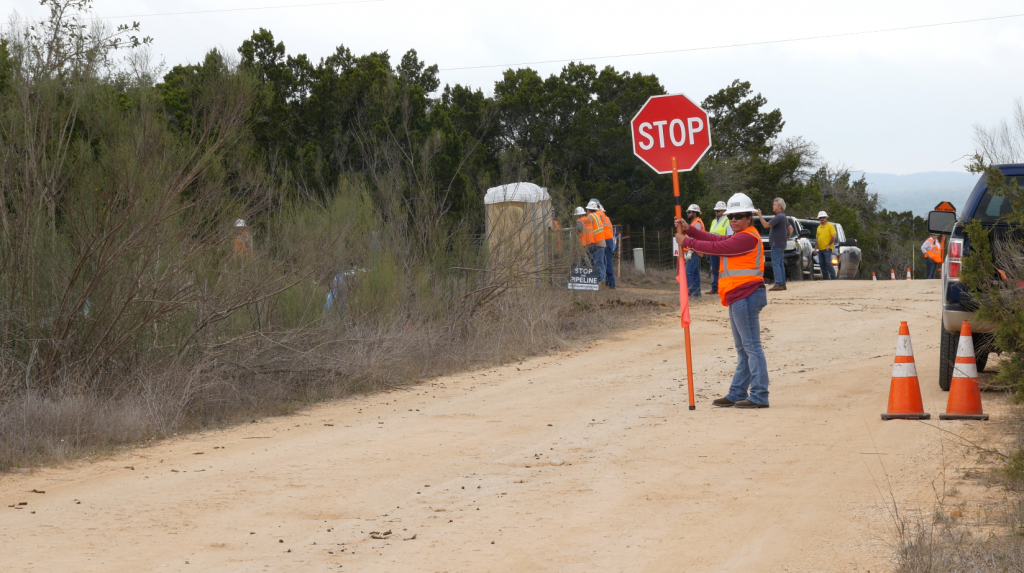
____________________________________________________________________________
Here is the official statement from the TREAD Coalition:
Statement by TREAD Coalition re: Denial of TRO in City of Austin, et al v. Kinder Morgan Pipeline, LLC, et al
A federal district court in Austin denied the plaintiffs’ request for a Temporary Restraining Order (TRO) Friday evening. The Court did not rule on the merits of the lawsuit but, instead, only on the narrow point of whether sufficient “irreparable harm” had been shown to endangered species to warrant emergency relief. This means that Permian Highway Pipeline (PHP) construction can proceed while the merits of the lawsuit are being addressed. The Court ordered a conference call of the parties on Tuesday, February 18th at 3:30 pm to establish a schedule for the next phase of whether a preliminary injunction should be issued.
We do not agree with the Court’s irreparable harm analysis, and its failure to consider such other significant harms as loss of heritage oaks and spread of oak wilt. But it must be emphasized that other major issues remain for decision by the Court, including:
- Whether the PHP can proceed without review, including public hearings and comment, under the National Environmental Policy Act (NEPA). NEPA requires that major federal actions likely to cause significant harm to the human environment be subject to careful evaluation and public scrutiny. Public scrutiny of the PHP process has been essentially non-existent. It did not happen at the state level when the PHP used Texas’ outmoded, not to mention outrageous, rules for allowing eminent domain to be conducted. And it has not happened at the federal level, as federal agencies worked privately and hand-in-glove with the PHP’s private companies to enable the pipeline’s progress. The Court made a pointed note about this secretive process during the hearing. A core objective of the TREAD Coalition is to open up the hidden process of pipeline approvals to advance public scrutiny, but the immediate task is to expose the Kinder Morgan plans to ravage the Hill Country to the public eye as much as possible before all of the damage is done.
- Whether the PHP can proceed without an Endangered Species Act Section 10 permit from the USFWS. The nationwide permit (under the Clean Water Act) and biological opinion (under the Endangered Species Act) that Kinder Morgan obtained for the PHP are legally insufficient to “permit” the entire project. Neither USACE nor USFWS documents should be interpreted to give the lawful go-ahead to harming endangered species by Kinder Morgan clearing in the uplands between the stream crossings.
It is important to understand that the TREAD Coalition and its supporters see a multitude of problems, both legal and scientific, with the route that Kinder Morgan has chosen through the Hill Country. The Endangered Species Act is only one small part of the problem. It just happened to be the one most immediately triggered by the imminent threat to endangered species caused by Kinder Morgan’s plans to begin clearing activities.
Texans deserve a public process, at both the state and federal levels, to weigh the value of the PHP against the impacts on our land and communities. Before irreversible harm is done to our beautiful Hill Country landscape, the safety of our families, our economic plans, the environment and our aquifers, the public should be brought into the process and allowed to scrutinize the science and offer their valuable perspectives and insights. The final routing decision should be made by public officials accountable to all the citizens of Texas. Kinder Morgan executives should not have the unilateral power to decide where to build an industrial highway that affects thousands of landowners and dozens of communities.